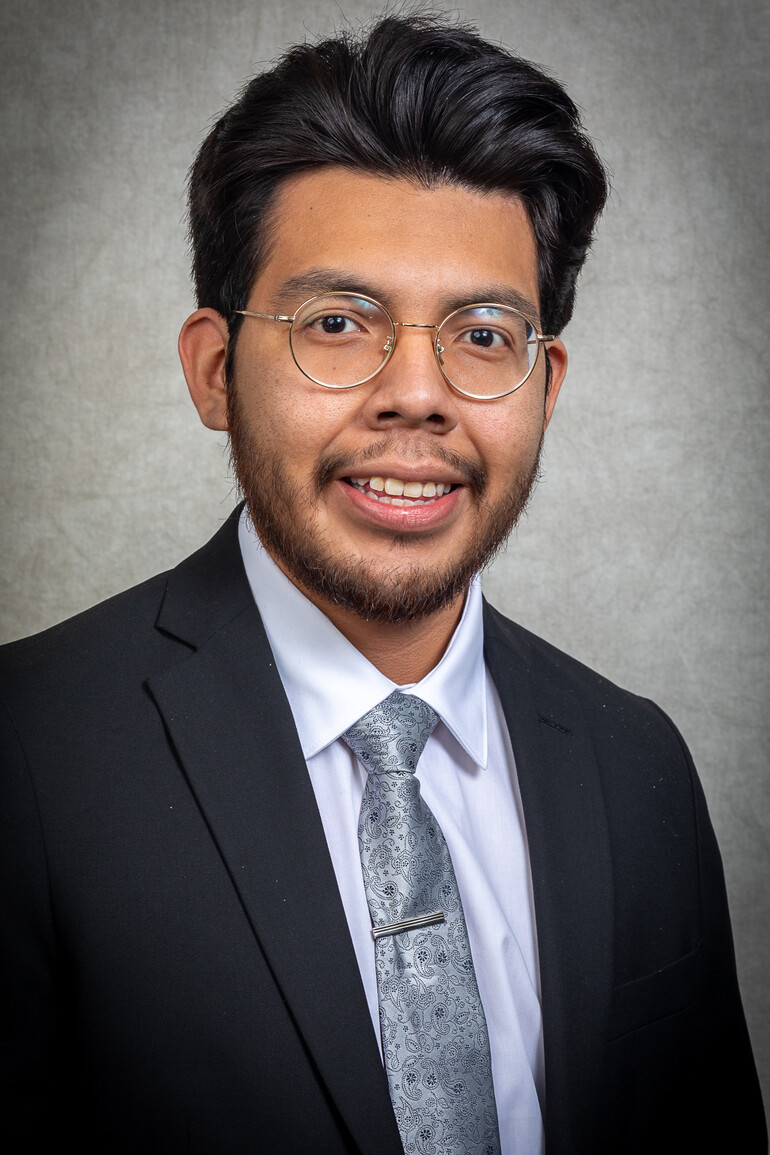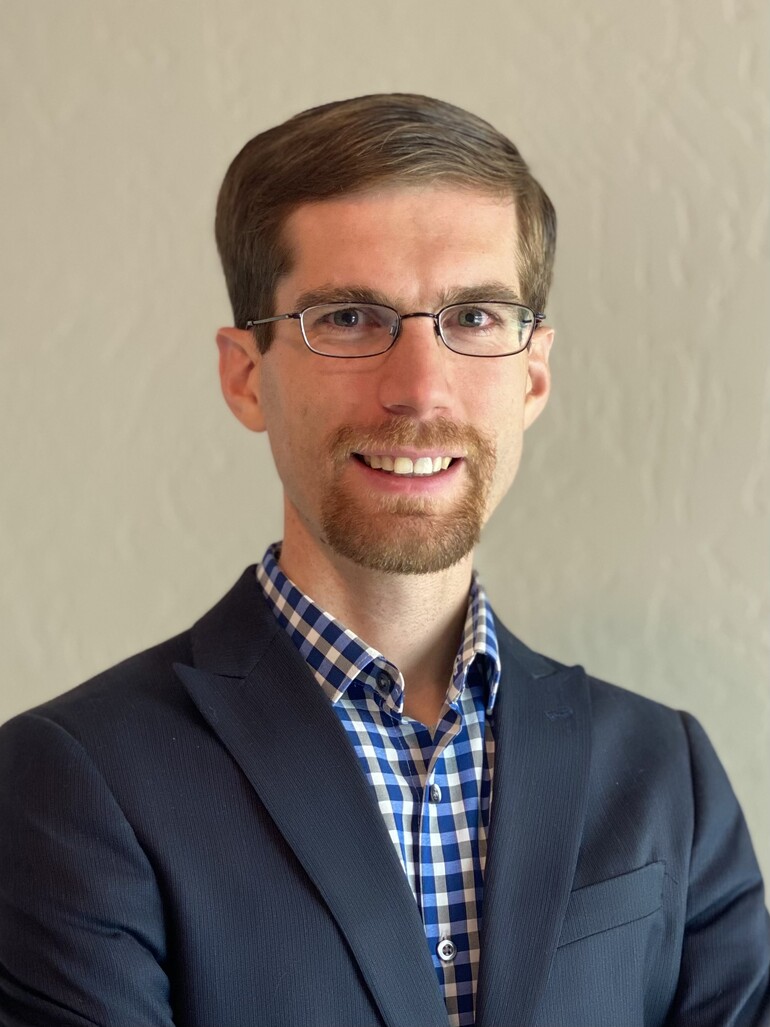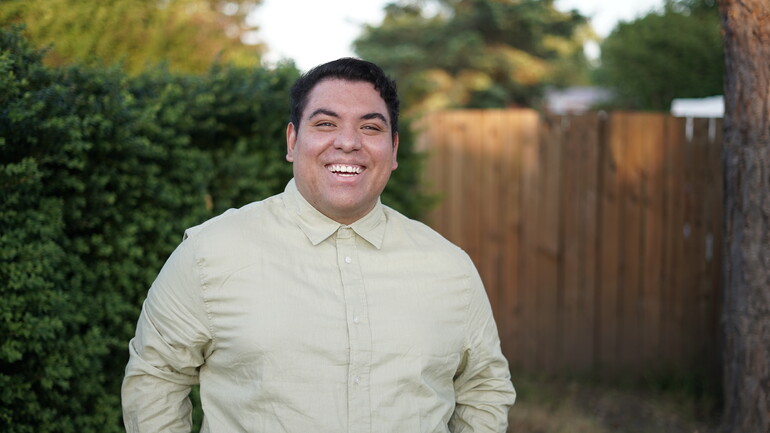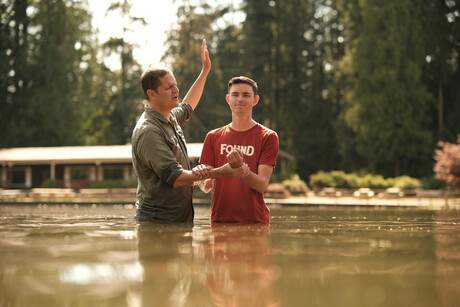While the Seventh-day Adventist Church was once a large group of multi-generational families attending church and doing community outreach, the membership numbers are decreasing, due in part to the lack of engagement with young adults.
Between 1965 and 2022, approximately 17.6 million people left the Adventist Church.1 According to data from a 2014 statistics report2 from David Trim, General Conference director of archives, statistics and research, 63.5% of those leaving the church are young adults. Taking that into account, that equates to approximately 11.18 million young adults leaving the church within a 57-year period.
“While young adults are attracted to Jesus, they are not seeing the church as relevant to the issues in their lives and the world they are living in,” said Rob Lang, North Pacific Union youth and young adult ministries director.
“Young adults in ministry are vitally important for both the young adults and for the church,” continued Lang. “When they use their gifts in the body of Christ, they grow and the church grows. When young adults are involved with ministry, the church thrives and so do they!”
When young people are provided with a supportive church environment and given the chance to lead out in ministry, it creates an opportunity not only for the individual to grow, but for the church to thrive through the continued effort and engagement of those young people.
“The Bible is filled with stories of instrumental, vibrant young adults, and it is no different today,” shared A. Allan Martin, teaching pastor at Younger Generation Church in Arlington, Texas, and Growing Young Adventists point person for the North American Division. “It was the fervor and faithfulness of young adults who sparked the Adventist movement. Without young adults, ministry perishes.”
There are many young people in our conferences who continue to be involved in ministry and advance the mission of the Adventist Church. Read on as six young adult Adventists in the Northwest — Sergio Vasquez, Matthew Kontra, Matthew Leffler, Eliezer Martinez-Palafox, Lauren Larson and Kenneth Martinez — share their stories, approaches to ministry and perspectives on the importance of young adults in the church.
1. https://documents.adventistarchives.org/Statistics/Other/ACRep2022-Text.pdf
2. https://www.adventistresearch.info/wp-content/uploads/Revised-Leaving-the-Church-combined.pdf
Alaska: Sergio Vasquez

Sergio Vasquez
Sergio Vasquez, youth pastor at Hillside O’Malley Adventist Church in Anchorage, Alaska, shared that being a young adult in ministry has allowed him to relate to other young adults in a special way.
Vasquez, who originally grew up in Georgia, began attending church regularly at the age of 12, and decided to be rebaptized and grow in his walk with God at the age of 17. While attending Southern Adventist University, Vasquez heard many powerful testimonies, which inspired his continuous prayer for God to make him into someone who inspires others.
“I accepted the call to ministry because the Lord saw that only through serving would I be saved,” shared Vasquez. “When I got the call to Alaska, it was my prayer to learn complete dependence on God. Being far from my family and friends has been challenging, but I’ve had to depend much more on prayer and His word. The result has been a more intimate walk with God.”
In addition to leaning on God for support while away from his loved ones, Vasquez has been able to build relationships with the young adults in his church. “I am able to listen to their stories and share with them biblical counseling, thus creating great friendships,” he said. “The young adults in Alaska are enthusiastic and have a great desire to serve.”
Anchorage hosts an active chapter of Adventist Young Professionals, a Christ-centered community of young adults seeking to engage and form connections. “Adventist Young Professionals is a ministry that is growing here in Alaska. It gives young adults a space where they can make friendships and worship God together,” said Vasquez. “The young adults lead this ministry, and as a pastor I support and motivate my churches to become involved in this ministry.”
The importance of young adults in ministry is something Vasquez works to emphasize. “It is important for young adults to be involved in ministry because they are the present church,” said Vasquez. “They are the ones who will finish the work the Lord bestowed to us so long ago.”
Vasquez went on to say that young adults are leaving the church at large because of the failure to make the church a home for them. “The older generation, many times, fears change within the church,” he said. “They are unwilling to pass down the leadership positions to the ones who should be leading at this point. There is a great need for mentoring and genuine relationships. If every member was intentional about developing a real friendship with a young adult, then we would find consistent attendance from them.”
Idaho: Matthew Kontra

Matthew Kontra
While Matthew Kontra currently serves as a pastor in Idaho Conference, he didn’t initially see himself in a pastoral role. “I still often wonder why He called me, but I think those who are the least qualified have to take the job most seriously,” said Kontra.
Kontra grew up in Corvallis, Oregon, and spent summers working at Camp Ida-Haven as waterfront director and a counselor. He later went on to study religion at Walla Walla University and minored in global development with the intention of doing charity work overseas. However, God had other plans. “I felt confident that God was calling me here, and instead of fighting it, I allowed my heart to listen,” he said.
In his current position, Kontra serves a district of two churches. He works as associate pastor at Caldwell Adventist Church alongside Lou Fitting, senior pastor. Additionally, as the sole pastor at Gem State Adventist Academy Church, Kontra focuses on mentoring and engaging with high school students.
“Young adults bring life and new ideas to all areas of ministry,” reflected Kontra. “They are the bridge. They’re youthful enough to be connected to today’s world and open to new trends, yet mature and tactful enough to implement them reverently.”
As churches expand and their members grow older, young adults are often pushed to the sidelines and not given opportunities to be involved. Kontra emphasized that having young adults take part in ministry gives the church a future.
“It’s hard to care for something if you haven’t invested anything in it. A young adult is the perfect age to start taking on big responsibilities,” shared Kontra. “If we are willing to invest in our young adults and put them in places of leadership, they will naturally make it a place more inviting for everyone.”
“Many people are worried they will mess things up or make mistakes,” he added, “but it’s for this very reason that we need so desperately to get them involved. Let them make mistakes while wise mentors are still around to help.”
Montana: Matthew Leffler

Matthew Leffler
While some individuals have been called to serve within their conference borders, God led Montana Conference member Matthew Leffler to serve as a missionary in Thailand.
“Although I was active in my local church and conference, as I learned about the tremendous spiritual needs in Asia, I became convinced that more workers were needed there,” shared Leffler.
In Leffler’s many roles at his local church — Sabbath School teacher and superintendent, deacon and elder — he sought out to provide a young adult’s influence and perspective. This goal carried through during his time served on both the Montana Conference board of directors and the NAD executive committee as well.
“As young adults, we can influence people no one else can, and we have greater agency over the direction of our lives than almost any other time,” said Leffler. “It was young adults who started the Adventist Church, and the work will not be finished without young adults in active service for God.”
The province Leffler and his family are serving in central Thailand has approximately the same population as the state of Montana, yet has no Adventist pastors, churches or schools. In his efforts to establish a church, Leffler is actively learning Thai to communicate with the local people. Additionally, he shares Thai literature whenever possible to touch their hearts and begin growing the Adventist community.
“Faith is caught more than taught. Service for Christ is the spirit of the gospel,” shared Leffler. “I don’t think I would be an active Adventist today if my parents hadn’t left their comfortable life to church plant in a dark county in Illinois when I was a kid.”
“I saw God provide for our needs; I saw people who wanted something better find hope; I saw the beautiful consistency of our Adventist message; I saw the joy of people loving Jesus,” he continued. “There was no question in my mind that this was real and it was valuable.”
Leffler’s call to minister in Thailand makes it evident that young adults are willing to serve and share the gospel if given the opportunity and support. “Put us to work,” Leffler advised. “Give us opportunities to learn faith by practical experience. Show the power of the gospel over addictions, fear and selfishness. Help us find joy in service.”
Oregon: Eliezer Martinez-Palafox

Eliezer Martinez-Palafox
Eliezer Martinez-Palafox’s involvement in Forest Grove Spanish Church began when his family moved from Arizona in the spring of 2005. As a second-generation Adventist, Martinez-Palafox’s parents instilled a sense of leadership within him.
Martinez-Palafox said his first involvement with ministry was back in Arizona when he participated in a child preaching event in Phoenix. “I suppose I was not unfamiliar with ministry, but it has always been a sort of performance,” he said.
He continued to be drawn to ministry within Oregon Conference, and was eventually called upon by Saul Wade, who was then serving as Forrest Grove Spanish Church media director, to learn and run EasyWorship, a software used to present church media. This sparked his initial interest in media ministry.
During his teenage years, Martinez-Palafox was mentored by Tracy Wood, former Oregon Conference pastor and current NAD youth and young adult ministries director, and Gary McLain, former Oregon Conference communication director. They invited Martinez-Palafox to attend, participate in and assist with events like Pathfinder fairs, education conferences and camp meetings.
Martinez-Palafox shared that Les Zollbrecht, Oregon Conference youth ministries and Big Lake Youth Camp director, and Benjamin Lundquist, Oregon Conference young adult ministries director, both impacted the way he does media ministry today. “During my college years, I spent four wonderful summers teaching children how media can be a storytelling tool that allows us to paint wonderful stories with light,” said Martinez-Palafox. “That was the dream job. Not necessarily because I didn’t have to do the hard labor of the kitchen, but because I saw how media can be used as a tool to communicate the intangible feelings that we hold so dear.”
As media director of Forest Grove Spanish Church for the past four years, Martinez-Palafox has continued to grow in his passion for media ministry by directing the live stream and scripted productions and leading social media outreach. Additionally, he does contract work with Oregon Conference as a video producer for camp meeting and other events.
“My work with ministry is not the primary function of my work, it is simply the result of various communities that embraced me and fostered my skills at every turn,” shared Martinez-Palafox. “In short, I was seen for what was valuable in me and so I felt loved by people who cared to see me. I believe that we are not lacking workers for ministry, but we lack mentors who are willing to see the value in young adults.”
“Young adults don’t stay because of the music, programs, food or even the sermons,” he continued. “Young adults stay because they see Jesus in the people they meet. If a church wants to see more young adults, they need to see more young adults. This is the reason I stayed.”
Upper Columbia: Lauren Larson

Lauren Larson
While Lauren Larson grew up attending Adventist schools and church, she didn’t recognize God’s impact on lives until she was in junior high.
After seeing God transform the life of a close friend, Larson began a journey that led her to becoming a student missionary, doing community outreach, touching lives at Camp MiVoden and ultimately deciding to pursue a degree in education. “I decided I wanted to teach so I could show daily love for and confidence in my students in hope that they will know they are not alone,” shared Larson.
Larson’s love for Camp MiVoden started when she attended as a camper. She went every summer and shared that the camp staff and their kindness made MiVoden feel like a home away from home, later leading to her wanting to be involved in a new capacity.
“I felt intense spiritual highs there and through every experience I knew I wanted to be part of camp as much as possible,” she said. “As I've grown, I now recognize camp as a deeper ministry and I continue to go back because I want to create a space that embraces all people like camp embraced me, no matter the challenge they're facing, their background or their identity.”
When Larson was in high school, she attended the returning missionary vespers program at Walla Walla University. “I felt the call to go experience more, to stretch my limits and to put myself in a more direct form of service,” said Larson. After three years of twists and turns, she ended up serving as a missionary in Yap, Micronesia, teaching ninth grade.
“I truly think ministry is the act of planting seeds you may never see grow,” she said. “Much of the time I've spent at camp and as a student missionary has felt that way — I've worked with campers and students and I've loved them the best I know, but I don't always see the result.”
Larson noted that churches and young adults can benefit from each other in a symbiotic nature. “There are countless reasons why being a part of a church community is beneficial, especially when you see God through the process and feel fulfilled through service,” she said. “However, it is just as impactful and important for the church to have active young adults and to protect that involvement.”
“It's hard to stay in a place where you constantly feel accused, inadequate or just plain judged and unwanted,” she continued. “When young adults are respected, are actively cherished and are invited to be a part of the church in the ways that they feel called, there is no greater blessing to a community than the fresh wind Jesus blows through them.”
Washington: Kenneth Martinez

Kenneth Martinez
Kenneth Martinez grew up in a Christian home in Mexico and decided to follow Jesus at the age of 14 — a decision he says changed his life forever.
“I found purpose, hope and friendship in Him,” shared Martinez. “Since that age, I knew I wanted my friends to come to know the Jesus I loved.”
Despite the call he felt toward ministry, Martinez instead pursued a degree in computer science. That said, he still became actively involved as a lay person in young adult ministry.
When he began working for Microsoft as a software engineer in 2011, Martinez also followed his passion for ministry on the side by working with youth and young adults at a local church plant. This passion led Martinez to obtain a master’s degree in theology.
In 2017, Martinez submitted a proposal for a church plant to Washington Conference, outlining a plan to bring his peers in tech to learn more about Christ. The plant was approved, and Martinez came on board as a lay pastor. In May 2023, the plant, now known as Refuge Church, celebrated their five-year anniversary and obtained church status.
Martinez began working toward a doctorate of ministry degree, and was later called by Washington Conference to become a full-time pastor. He felt God was calling him to minister full time to those his age and younger, and he resigned from his position at Microsoft to expand his role at Refuge Church and extend his efforts to Triumph Church.
“Both my churches are big on community, since they are young,” shared Martinez. “Young adults crave Jesus, even if they don’t know it. They crave community, purpose, hope, impacting their community; Jesus is the way to all those.”
“Young adults and youth have been taught to love values such as inclusion, diversity, social justice and authenticity,” he continued. “To the extent our local ministries can inform or leverage such values, young adults will find familiarity in the church.”
“Doing effective ministry for young adults is not so much about being creative and innovative,” said Martinez. “Instead, it's about getting out of the way, and letting them come to Christ unhindered, coming to Christ in their context, cultural milieu and generation-specific form.”
Young adults are not only the future of the Adventist Church, they are also the present. Providing young people with a safe space to grow in ministry and connect with others will help them build a long-lasting relationship with the church and additionally assist in the guarantee of the church’s longevity.
These six Northwest young people are prime examples of what can happen if young Adventists are given the opportunities and guidance to grow in ministry. By providing a young adult with a chance to lead, other young adults will follow, in turn building and enriching the church community.









